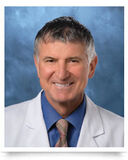Video Update: After Complex Heart Valve & Atrial Fibrillation Surgery, Clarissa Is Doing Great!
By Adam Pick on December 4, 2013
I recently met Clarissa Alaimo, a 53-year old patient from Lake Forest, Illinois.
Like many patients, Clarissa suffered from shortness of breath and fatigue due to several cardiac issues including mitral stenosis, tricuspid regurgitation and atrial fibrillation. So you know, Clarissa experienced rheumatic fever years ago.
To help you learn more about Clarissa and her complex surgery, I created this patient success story video. For the hearing impaired members of our community, I have provided a written transcript below.
Many thanks to Clarissa for taking the time to be interviewed for this video. I also want to thank Dr. McCarthy, Dr. Vassallo and the Northwestern team for taking such great care of Clarissa.
Video Transcript of Clarissa’s Video
For the hearing impaired members of our community, I have created a written transcript of this video below.
Dr. Patrick McCarthy: I am the Director of the Bluhm Cardiovascular Institute here at Northwestern Memorial Hospital, and I’m also the Chief of Cardiac Surgery. It’s now 23 years since I’ve finished my training. I’ve probably done over 10,000 heart operations during that time. About half are heart valve operations. It’s the usual aortic and mitral valves, but I also have a particular interest and experience in tricuspid valve surgery. Cardiac surgery took me a little while to warm up to. I had decided I wanted to be a surgeon, but then I started seeing valve operations, translate, ventricular assist devices, aneurisms, all sorts of things. It was like a light switch was flipped. There was no looking back.
Dr. Patricia Vassallo: My name is Patty Vassallo and I’m a non-invasive cardiologist at Northwestern Memorial Hospital. I’ve been in practice for six years. My main focus in non-invasive cardiology is echocardiography and that’s how I really got interested in valvular heart disease because it’s really the diagnostic imaging choice for initial testing in valvular heart disease.
Clarissa Alaimo: My name is Clarissa. I’m from Lake Forest, Illinois and I’m 53 years old. I was diagnosed back in 2004. It was very scary. I couldn’t do a lot. I was exhausted doing simple tasks. I couldn’t walk from the store to my car in the parking lot. I went to the doctor and they actually admitted me to the hospital where they diagnosed me with mitral valve stenosis.
Dr. Patrick McCarthy: Clarissa had a fairly complicated operation when she came to us. The valve was very tight, the mitral valve. She had rheumatic fever. The valve itself was very scarred, it was calcified. Not just the mitral valve leaflets, but even the area underneath it also had scar tissue and calcium. In that situation a repair won’t work very well and that’s the patient that has to have it replaced.
Dr. Patricia Vassallo: At the time of diagnosis, Clarissa also had atrial fibrillation, which is an abnormal rhythm of the heart that is caused usually by left atrial dilation due to mitral valve disease. In addition, the tricuspid valve was also affected by her mitral valve disease and she had tricuspid regurgitation and that was repaired at the time of surgery as well.
Clarissa Alaimo: It was a very positive experience. When I first met Dr. Vassallo she was very thorough, made me aware of everything that was going on with my heart. She’s a great doctor.
Dr. Patricia Vassallo: We find that many people with valvular heart disease have complex disease and we really have to individualize treatment and work with the surgeons as well as a cardiologist to come up with a personalized approach for each patient that we see. That’s why it’s really important to go somewhere where you have a team-based approach where the surgeon and the cardiologist talk together to come up with the best plan for the individual patient sitting in front of you. Clarissa’s doing great. Her valve is stable and she has no signs of recurrence of her atrial fibrillation.
Dr. Patrick McCarthy: Clarissa did very well after surgery. She went home in about a week. We replaced the mitral valve, we repaired her tricuspid valve, and then also we treated her with this maze procedure we call it, to get rid of her atrial fibrillation. She had to require a pace maker. When you have atrial fibrillation and you need the two valves operated on, it’s not that uncommon. About 8% of people will have a slow heart beat and need a pacemaker. Afterwards, she’s made a great recovery and she’s doing much better than she was.
Clarissa Vassallo: I would highly recommend Dr. McCarthy. He makes you feel at ease. He’s a great surgeon and his reputation is wonderful.
Keep on tickin’ Clarissa!
Adam











